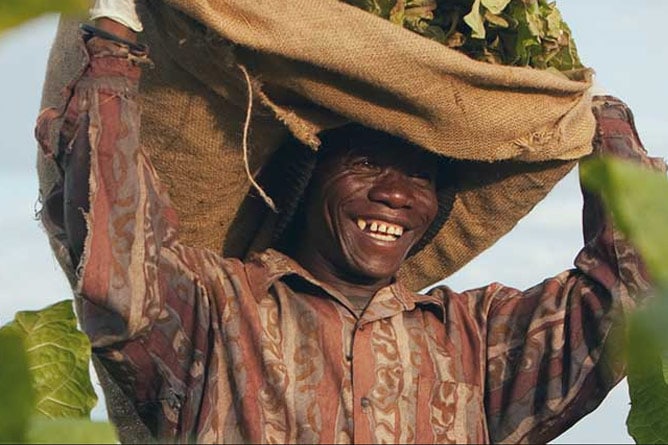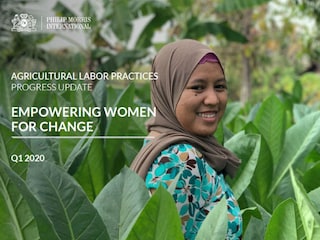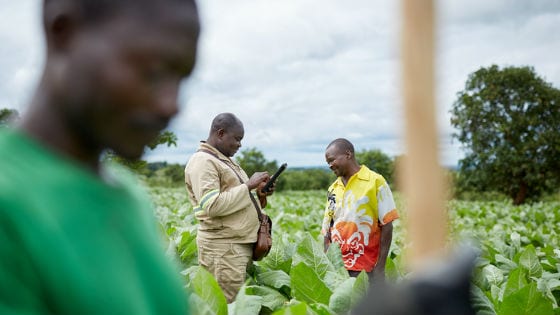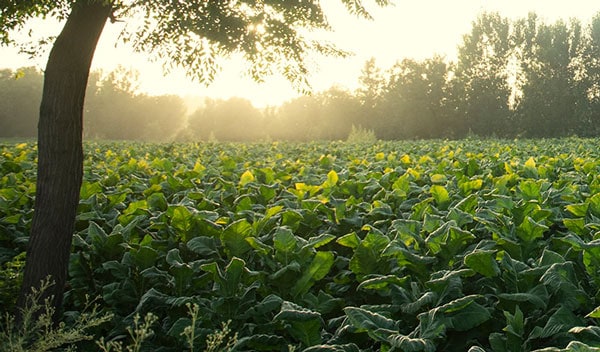Agricultural work can be informal, seasonal and transactional in nature. And in developing and emerging markets, this can leave farm workers vulnerable to labor rights abuses, as well as other occupational risks. To help address these risks, we established our Agricultural Labor Practices (ALP) program in 2011, with two main objectives:
- To eliminate child labor; and
- To achieve safe and fair working conditions on the farms we source our tobacco from.
We continuously communicate the standards of our ALP program to farmers throughout our supply chain, making them aware of our expectations. And we have put in place the resources needed to understand the conditions on the farms, and to bring sensible
solutions to problematic practices.
We partnered with Verité, a leading NGO in supply chain sustainability, to design and implement our ALP program. Together, we continue to monitor
and evaluate its effectiveness.
PMI’s ALP program continues to represent one of the most comprehensive and ambitious efforts by a major multinational company to improve labor practices in a global agricultural supply chain. PMI’s integrated emphasis on direct contracting with farmers, regular on-farm monitoring by suppliers, and targeted programming to address the root causes of labor issues positions the company well to drive real change for farmers and farm workers.
Making a 'Step Change'
Our ‘Step Change’ approach focuses on the most recurrent and difficult problems across different geographies, including:
The approach carefully analyzes the root causes of identified problems to improve the responsiveness of our day-to-day operational practices, and shape our work with stakeholders. This includes:
- Due-diligence;
- Monitoring; and
- Follow-up and consequence management.
As a result, we developed comprehensive and ambitious action plans, taking into consideration the local, social and economic drivers of priority problems that we aim to eradicate. These plans are currently being implemented and will be a fundamental part of our program in the coming years.Together with Verité, we are increasingly partnering and collaborating with key stakeholders, including local NGOs and governments. We will transparently report our progress on a quarterly basis.
PMI’s commitment to achieve substantial 'Step' Changes on key persistent labor issues represents a new phase and level of seriousness in the evolution of the ALP program. The new initiatives seek to tackle challenging labor problems at their roots, addressing the underlying drivers of poor practices in a customized and multi-pronged way.
Transparency
We believe that disclosing our progress, and the challenges we face, is important in addressing the issues of child labor and other labor-related abuses in our tobacco supply chain. We publish third-party assessments of our ALP program, conducted by Control
Union. The assessments aim to evaluate the current status of farm-labor practices and risk areas on a given tobacco growing geography, and include comprehensive plans prepared by the suppliers to address the findings. The results of these assessments
and the action plans are disclosed here.
We also published
comprehensive progress reports up until 2016. As of 2017, annual ALP reporting became an integral part of our Sustainability Reports. In addition, we periodically
publish focused progress updates here to allow more regular communication
about the program.
A key element of our Agricultural Labor Practices (ALP) Code is equality for all and in our first ALP Progress Update of 2020,
we look at how we are working to empower women in our tobacco supply chain.
Our reports and progress updates are available on our Sustainability Resources page.




